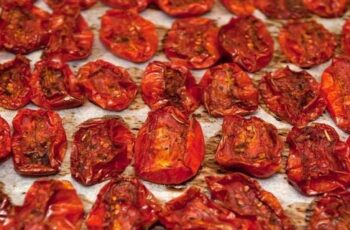Ad Blocker Detected
Our website is made possible by displaying online advertisements to our visitors. Please consider supporting us by disabling your ad blocker.
All foods digest in the body at diverse times. This is how long they sit in the stomach before passing into the intestine. It’s important to know the different food digestion times in order to avoid digestive problems or discomfort.
If you undergo irritable bowel syndrome, you have to make sure you’re not doubling the issue by combining foods that digest at various rates.
The times specified in this article are only estimations as the exact digestion time relies on different criteria such as the person’s age, health, metabolism, and several other factors.
Quick digesting foods pass through your stomach so fast that they will not fill you up. This makes it easy to overeat and taking in more calories and leading to weight gain. The biggest cause of weight gain from fast-digesting foods is often fruit juice because it is calorific, high in sugar and easy to consume a large amount of.
Slow digesting foods will be absorbed at a steady rate supplying your body with constant energy. Yet, your body will regularly need to work and it is vital not to consume too many slow-digesting foods to avoid your digestive system getting overworked and never resting.
AVOID MIXING FAST AND SLOW DIGESTING FOODS
It is advisable to avoid combining slow and fast-digesting foods in the same meal. Have the fast-digesting foods first, such as fruit, and then move onto the slower complex carbohydrates once the fruit is digested.
Eating fruit after a heavy slow-digesting meal can lead it to stay in the stomach and ferment, thus causing gastric issues.
If you eat something while your body is still digesting the last meal, it can cause discomfort and risks overloading your stomach.
Concerning breakfast and dinner eat meals with quickly digested foods. You don’t need to overload your body when you wake up or while you are trying to sleep.
Lunch is the time to eat foods that have a mixture of different digestion times as its the most productive time for the body. A meal like a cashew cheesecake isn’t perfect food combining but lunch is the best time to eat it.
WATER DIGESTION
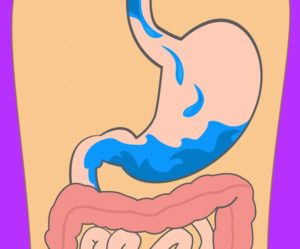
water digestion
On an empty stomach, water leaves immediately and enters the intestines. It’s recommended to have a glass of water first thing in the morning before any food to hydrate yourself rapidly. Drink water half an hour before a meal, not because of digestion but to stop washing away nutrients.
JUICES, SMOOTHIES, AND BROTHS DIGESTION
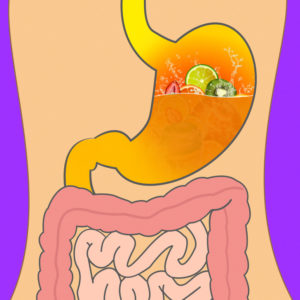
fruit vegetable juice
Juices or broths contain no fiber and will be digested in about 15-20 minutes. Fresh juices are a useful way to get a lot of vitamins and minerals from fruit and vegetables absorbed quickly. For health reasons, it’s recommended to have juices that are at least 50% of vegetables to prevent having too much fruit sugar.
Smoothies are where fruit, vegetables, or salad have been blended and retain the fiber. They are more useful than juices for filling you up as they take 20-30 minutes to digest.
FRUIT DIGESTION
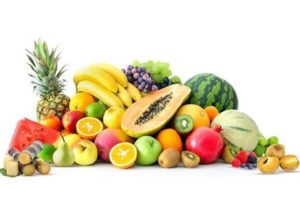
FRUIT DIGESTION
Watermelons are digested in 20 minutes and other melons take 30 minutes. Oranges, grapefruit, grapes, and bananas also take 30 minutes.
Most other fruit such as apple, pear, cherries, plums, kiwi takes 40 minutes to digest.
It’s recommended to only eat fruit together that is digested at the same time to avoid digestive issues and IBS. For this reason, watermelon should always be eaten on its own.
VEGETABLE DIGESTION
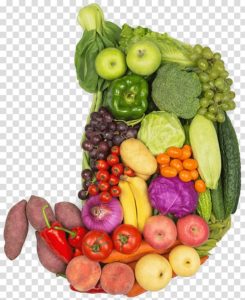
VEGETABLE DIGESTION
Raw high water salad vegetables such as lettuce, cucumber, peppers, tomatoes, and radishes digest in 30 minutes.
Leafy green and cruciferous vegetables such as kale, broccoli, cauliflower, bok choy when cooked digest in 40 minutes.
Root vegetables, excluding potatoes, like beetroot, carrot and parsnip digest in 50 minutes.
Starchy vegetables such as butternut, corn, sweet potatoes, potatoes, and chestnuts digest in 60 minutes.

